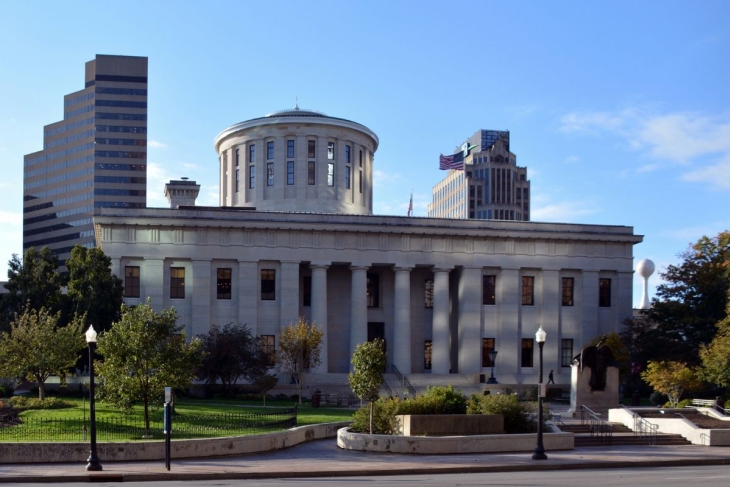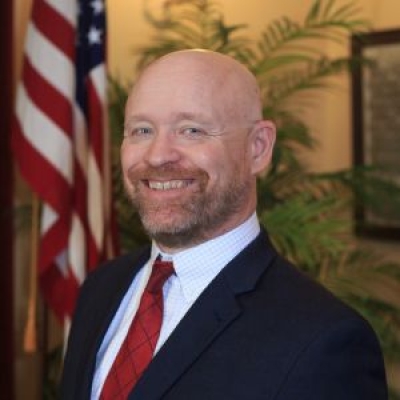Note: Today, the Ohio House’s Primary and Secondary Education Committee heard testimony on Senate Bill 168 which would, among other things, deregulate many aspects of K-12 education in the state. Fordham’s Vice President for Ohio Policy provided interested party testimony on the bill’s main provisions and several amendments intended to be added. These are his written remarks.
The intent behind SB 168—education deregulation—is one that Fordham wholeheartedly supports. We actually published a report on the topic all the way back in 2015. Unfortunately, like many well-intentioned efforts before it, SB 168 doesn’t go far enough in its efforts to deregulate and—where it is bolder—there’s been a push to remove those provisions from the bill. I’d encourage this committee in the coming years to find more areas where we can relax input measures to give educators more flexibility on how to help each child reach his or her potential. At the same time, it will be important to maintain outcome measures, high expectations, and transparency.
Given the nature of the legislation, SB 168 has many different issues that it touches. As such, I apologize in advance for not having a strong narrative connecting my comments on the bill’s various components. Instead, for the sake of efficiency, I’ll go through the key aspects of the bill where we have feedback individually.
First, I’ll focus on the provisions of SB 168 as passed by the Senate. Next, I’ll shift to commentary on those amendments that I’m aware are being considered by some committee members. That, of course, isn’t likely to be a comprehensive list.
3302.151—related to exemptions for high performing districts
- Strongly support the overall intent
- Should look for many more things to exempt districts from
- At the same time, exempting districts from the third grade reading guarantee requirement to provide well qualified teachers to struggling readers should be removed from the list of exemptions
- The current criteria for becoming eligible strongly favors wealthy districts. We recommend amending it to include districts with strong value added ratings as well
3319.111—related to district developed teacher evaluation protocols that differ from OTES
- Support this change but that support comes with a word of warning. It’s not going to matter what evaluation system is in place as long as principals and superintendents have to jump through a bunch of hoops to remove a teacher that is not up to par
- Until that changes, 97 percent plus of teachers are likely to be deemed skilled or accomplished even when—given the difficult and challenging nature of the job—that is unlikely to be the case
3302.421—related to remote administration of required state assessments
- We have very serious concerns about SB 168’s efforts to allow remote testing on the state assessment for online students
- The data security issues involved for state test items and the increased potential for cheating are difficult to ignore
3319.273 (new section)—related to administrator licenses
- We support the Senate’s effort to eliminate the master’s degree requirement to be a school administrator
- We should trust boards of education to hire qualified individuals into leadership positions and reduce educational barriers to entry
- If districts still want to hire administrators with a master’s degree, they can. State law just shouldn’t require it
3319.172—related to making decisions on merit rather than seniority for nonteaching staff
- We support the Senate’s language to eliminate seniority from non-teaching staff reduction determinations when employees differ in the quality of their work
- We’ll never have the schools we want if quality is essentially a non-factor when employment reductions are needed
Now, I’ll shift to amendments potentially under consideration.
Dyslexia training
- Recommend maintaining the requirement that the dyslexia advisory committee, rather than individual districts, determine the amount of necessary training
Adjusting the graduation rate calculation for students with disabilities
- Language being discussed has potentially significant ramifications and could change the incentive structure in a variety of ways
- More time and consideration should be given to the issue before any legislative action is taken
Sponsor evaluations for the 2024-2025 school year
- Strongly object to any efforts to remove the sponsor evaluation requirements
- Ohio’s community schools have improved, but it wasn’t just luck. It was a result of significant improvements to oversight. Now is not the time to change those requirements.
E-School enrollment limits
- Current law limits the rate of growth for online schools, but the Senate version repeals those limits
- We support efforts to maintain growth limits in Ohio Revised Code
Automatic closure provisions for district and community schools
- While we are supportive of making sure our current identification procedure identifies the correct schools for this most consequential of decisions, the issue deserves longer consideration
- No community schools will close before next year if action is not taken
- We would very much like to work with the General Assembly, if changes are going to be made to these provisions, to find a good solution (Yes, we have ideas)
* * *
Thank you for the opportunity to provide testimony today on Senate Bill 168 and some of the potential amendments. Education deregulation is an important topic, and something that we believe—even after this bill is moved forward—is still very much a work in progress. I’m happy to answer any questions that you may have.




